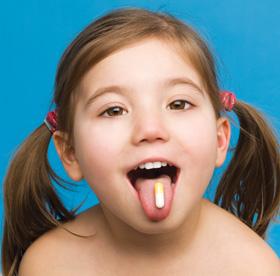Attention Deficit Hyperactivity Disorder (ADHD) cannot be diagnosed by a single laboratory or genetic test. The general consensus among medical professionals like Annamaria Kontor is that ADHD can be diagnosed by using well-tested diagnostic interviews and questionnaires, like NICHQ Vanderbilt Assessment Scales.
Diagnosing ADHD
ADHD is the most common mental health disorder diagnosed among children in preschool. It can now be found, on average, in one of every 11 children of school age. In order to begin treatment as early as possible, parents need to recognize which behaviors are a potential sign for the disorder. The most common visible symptoms in 3- or 4-year-olds are:
- Constantly climbing, even when told not to do so.
- Continuously moving, such as constantly bouncing a knee, inability to sit still, restless feet and frequent need to get up and move around
- Running and moving quickly, so quickly that it results in injury
- Inability to hop on 1 foot (4-year-olds specifically)
- Inability to play peacefully with others. Child may exhibit an occasional show of aggression at a level requiring the child be removed from the situation.
- Insisting on being louder and noisier than fellow playmates
- Befriending strangers, with little caution and no apparent concern for potential danger
- Showing low level of fear in situations that can place the child in danger
- Inability to focus for more than a few minutes before losing interest.
- Refusing to participate in activities that require focused attention for more than a minute or two.
To be diagnosed with ADHD, a child between the ages of 4 to 18 must show behavioral problems or problems in school. He or she must exhibit signs of inattention, hyperactivity and impulsivity. The child must display these problems routinely in several settings, such as home and at school.
Qualified professionals who are trained in diagnosing ADHD may include clinical psychologists, pediatricians or other physicians and clinical social workers. To find the right specialist for your child, ask other parents for recommendations. Do a little research on the professional you’re considering, including checking price for services and whether your insurance is accepted. Also, make sure that you and your child feel comfortable with your treatment specialist.
Treatment of ADHD
Diagnosing ADHD in young children can be challenging, explains Rochester-based pediatrician Annamaria Kontor. Doctors will usually try to first treat the condition in children ages 4 and 5 with behavioral therapies. If these therapies fail, and the child is having difficulties functioning in everyday life, doctors will consider prescribing medication to manage the condition.
As children get older and enter elementary school, the method of treatment generally includes both behavioral therapy and FDA-approved ADHD medications. The most common medication is the drug methylphenidate, known by the brand names Ritalin and Concerta. The doctor should stress that ADHD is a chronic illness that may last into adulthood.
This multimodal form of comprehensive treatment will be tailored to the child’s age and particular individual needs. The treatment plan may include any or all of the following:
- Parental training
- Behavioral intervention techniques
- Appropriate educational program
- Education specific to ADHD
- Medication
Because there is no known cure for ADHD and treatment is highly individualized, treatment plans have to be developed to meet the specific needs of each child and his or her family. Treating ADHD has to be a collaborative effort; it requires medical, educational, behavioral and psychological intervention.
